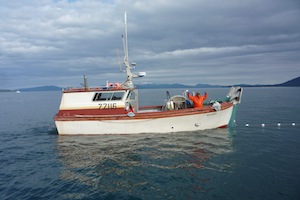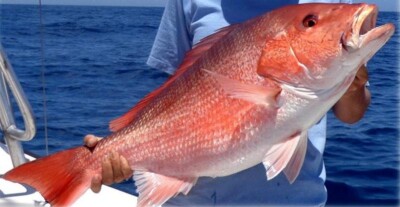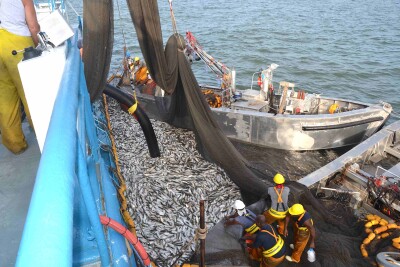Small coastal fishing communities depend on small commercial boats to survive. The health of fish stocks may depend on them as well.
Earlier this month a high court in England ruled that unused quota can be redistributed from larger boats to small ones. Though the decision will likely be appealed, for small-boat operators it’s a victory toward fixing unfair quota allocations they say are putting them out of business.
The numbers certainly don't look fair for small boats in England. Though fishing boats that are under 10 meters (33 feet) make up 77 percent of the fleet and account for two-thirds of fishing-related employment, they only get 4 percent of fishing quota. More than 95 percent of quota is allocated to the larger boats — often large trawlers owned by foreign conglomerates — which are granted individual quota while smaller boats share from a national pool.
Though there are many differences in our countries' quota programs, the U.K. ruling could be meaningful to U.S. fleets as a sign of a larger trend recognizing the importance of small boats.
The benefits of keeping them in the water were pointed out in an interview following the ruling. Small-boat advocate Jerry Percy from the New Under Ten Fishermen's Association was asked whether, in terms of economies of scale, it made more sense to have a small fleet of large boats catching the fish instead of a large fleet of small ones?
Percy was adamant: smaller boats are more sustainable on every level.
"Small scale vessels have a much lower environmental impact, not just in terms of impact to the seabed but in terms of carbon emissions and so forth," he said. "At the same time they have a very high social and economic benefit and impact to coastal communities. They employ local people, they utilize local services and of course they land top quality day-caught fish to the local consumer."
I believe both big and small boats play important parts within our diverse U.S. industry. But policy often makes it harder for small boats to compete, especially when quota shrinks. Small boats aren't able to move offshore to target something else, and they can be excessively burdened by the expense of 100-percent observer requirements.
We've seen some movements in the United States for protecting small boats like Maine’s permit bank program for groundfish. The Nature Conservancy recently made an agreement with the N.H. Fisheries Sector to buy groundfish quota from a retiring fisherman and lease it to fishermen who agreed to use it for research. And in Alaska, there are ongoing efforts to develop technology and rules that would allow small boats to carry cameras instead of costly observers.
To me, that seems better than having fishermen with smaller boats sell their quota when they can no longer make ends meet. It's a loss for everyone when a small-boat guy drops out: Often he takes with him generations of local fishing knowledge as well his port’s future as a fishing community.
Photo is a crew shot of the 32-foot salmon driftnetter Arctic Dawn submitted by Dave & Tanya Thynes. Ed Tagaban is owner/operator and homeport is Petersburg, Alaska.







